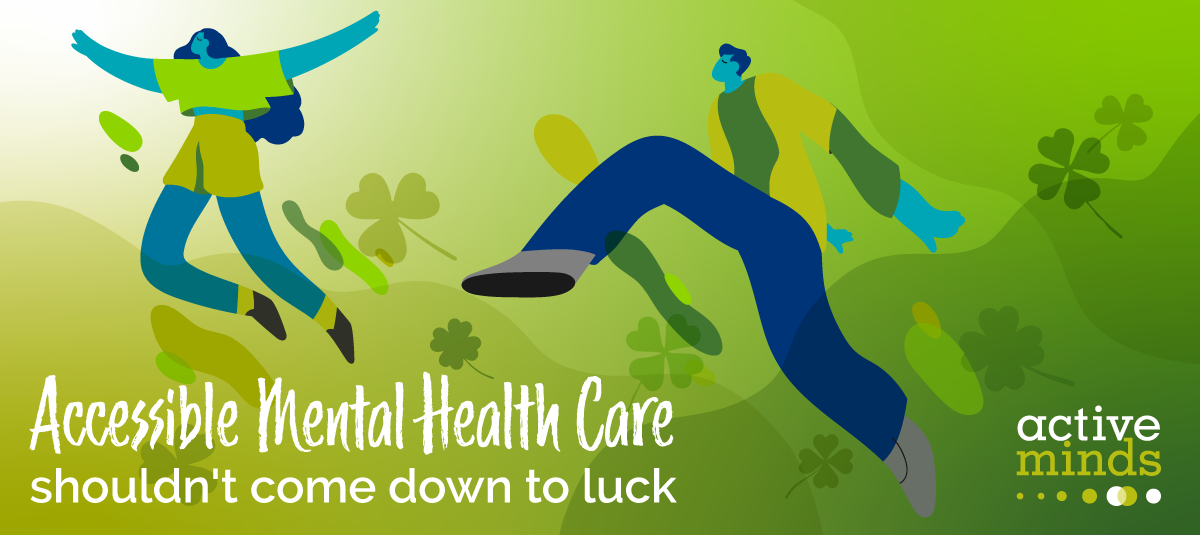Mental health has become an increasingly discussed topic over the past few years. More and more, people are willing to open up about their struggles, discuss strategies they’ve used to feel better, and help their loved ones through the same battles. Despite this, access to mental health resources remains inequitable and in many communities, the stigma persists. This St. Patrick’s Day, while everyone is celebrating luck with four-leaf clovers on their mind, I want to remind you of one thing: access to mental health resources and care should not come down to luck.
Every year millions of Americans with mental illness struggle to find mental health care. This means that the accessibility of mental health care is not available to everyone. Additionally, the availability of resources can often come down to demographic factors of those seeking help, including race, socioeconomic status, or geographic location. Mental health resource accessibility should not come down to bias or luck. It should be available for everyone. Mental health is healthcare and mental wellness is for everyone.
With my time with Active Minds, I have learned a lot and been a part of several programs, including the Student Advisory Committee, Your Voice is Your Power, Near-Peer Mentoring, serving as a V-A-R® (or Validate-Appreciate-Refer) trainer, and founding and acting as president of the Active Minds chapter at Xavier St. Francis Xavier Secondary School. These initiatives have helped me learn more about the accessibility of Active Minds resources. Specifically looking at the Your Voice is Your Power program, we advocated for BIPOC students to have better access to mental health at our schools. As members of society we should advocate for each other and the betterment of resources. One way to do this as a student is through the Transform Your Campus program. Active Minds provides free advocacy guides on simple ways to highlight mental health on your campus, such as ensuring adequate leave of absence policies, making crisis numbers more accessible, and more. Taking action in your community is one way we can ensure that mental health treatment and care don’t just come down to luck.
If you don’t have an Active Minds chapter on your campus, there are still a variety of ways we can provide resources and support to our peers. For example, we can share V-A-R® with our peers and help educate our community on how to be there for someone who may not have access to additional care during a difficult time. Tools like V-A-R® also don’t have to be used only during a crisis or when there are no other options; many mental health resources are beneficial in our day-to-day lives and conversations so it’s important to share them as widely as possible. Here are a few examples of helpful resources that are easily accessible:
- Signs and Symptoms: Signs of mental illness are not always universal. However, if you identify with the symptoms listed, it may be time to seek help. The first step to getting care is to know what you or a loved one is experiencing.
- Understanding Stress and Anxiety: Nearly one in three young adults experience anxiety, and stress is a common experience felt by many. Understanding the differences, as well as how to treat them, is crucial in ensuring your well-being.
- Offering Help: It can be hard to know that someone you care about is struggling. The first thing you can do is be there even though at times it may be scary or uncomfortable. There are things we can expect when offering support, as well as tactics to help ensure success.
Understanding your mental health and advocating for yourself is the first step you can take. Remember that you can use resources to help both yourself and others. You can also continue to advocate for change on your campus, in your workplace, in your community, and nationwide. We all deserve equitable and appropriate care, and together we will achieve that.




